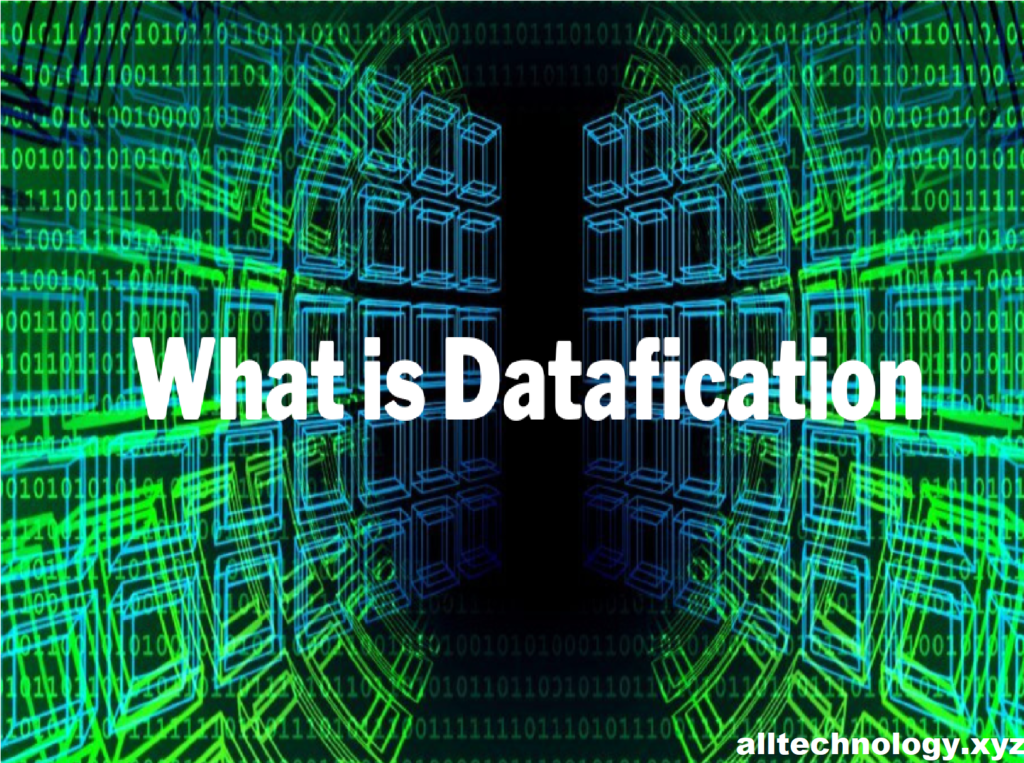Introduction:

In today’s fast-paced digital world, datafication has become a significant driving force behind business innovation, decision-making, and technological progress. Simply put, datafication refers to the transformation of various aspects of human life into data. From social media interactions and online shopping habits to healthcare records and business operations, nearly everything can be turned into data. This process allows businesses, governments, and individuals to analyze, track, and derive value from the information generated. But why is datafication so crucial, and how is it reshaping our world?
The Power of Datafication in Business
First and foremost, datafication plays a pivotal role in business transformation. With the rise of big data, businesses now have access to a wealth of information that enables them to make data-driven decisions. By collecting and analyzing data from various touchpoints, companies can optimize their operations, better understand consumer preferences, and personalize services. For example, e-commerce platforms use data to recommend products based on past purchases and browsing behaviors. This leads to a more customized shopping experience, boosting customer satisfaction and loyalty.
Furthermore, datafication allows companies to improve operational efficiency. By tracking and analyzing key performance metrics, businesses can identify bottlenecks and inefficiencies in their processes. This data-driven approach helps organizations reduce costs, streamline operations, and allocate resources more effectively.
Enhancing Decision-Making with Datafication
Another critical benefit of datafication is its ability to enhance decision-making. In the past, many business decisions were based on intuition or limited information. However, with the vast amounts of data available today, decision-makers can base their choices on solid evidence and insights. For instance, companies can use predictive analytics to forecast market trends, consumer demand, and potential risks. This enables businesses to make proactive decisions, stay ahead of the competition, and mitigate risks more effectively.
Moreover, datafication provides businesses with a 360-degree view of their customers. By analyzing customer behavior and preferences, companies can develop more targeted marketing strategies, resulting in higher conversion rates and increased revenue. In addition, this data-driven approach allows businesses to improve customer engagement and foster stronger relationships with their audience.
Datafication’s Role in Innovation
In addition to improving decision-making and business efficiency, datafication is driving innovation across various sectors. Companies are leveraging data to develop new products and services, creating disruptive solutions that meet emerging consumer needs. For instance, in the healthcare industry, datafication is revolutionizing patient care by enabling more accurate diagnoses and personalized treatments. Wearable devices that track health metrics, such as heart rate and sleep patterns, generate valuable data that doctors can use to provide better care.
Similarly, the finance industry has embraced datafication to enhance fraud detection and improve risk management. Financial institutions use data analytics to detect anomalies in transaction patterns, reducing the risk of fraud and ensuring a more secure environment for customers. In the transportation sector, datafication is playing a crucial role in the development of autonomous vehicles, which rely on real-time data to navigate and make split-second decisions.
The Social and Ethical Implications of Datafication
While the benefits of datafication are undeniable, it is essential to acknowledge the social and ethical implications of this process. As more personal data is collected, concerns about privacy and data security have grown. Individuals may feel uncomfortable with the amount of data being gathered about their habits, preferences, and behaviors, often without their explicit consent.
Moreover, datafication raises questions about data ownership and control. Who should have access to the data, and how should it be used? Companies must adopt ethical practices when handling data, ensuring transparency, consent, and accountability. Governments and regulatory bodies have also introduced data protection laws, such as the General Data Protection Regulation (GDPR), to safeguard individuals’ privacy and ensure that data is handled responsibly.
Datafication in Everyday Life
In addition to its impact on businesses and industries, datafication has become deeply embedded in everyday life. Social media platforms, for instance, collect vast amounts of data from users’ posts, likes, and interactions. This data is then used to curate personalized content, advertisements, and recommendations. Similarly, streaming services like Netflix and Spotify use datafication to offer personalized content suggestions based on users’ viewing or listening history.
Moreover, the smart devices we use daily—such as smartphones, fitness trackers, and smart home systems—are continuously generating data. This data not only enhances user experience but also provides valuable insights to manufacturers, helping them improve their products and services.
Conclusion:
In conclusion, datafication has become an integral part of the modern world, influencing how businesses operate, how decisions are made, and how innovation occurs. Its ability to transform raw information into actionable insights allows organizations to optimize processes, improve customer experiences, and drive growth. However, with this tremendous potential comes the responsibility to handle data ethically and protect users’ privacy. As datafication continues to evolve, it will undoubtedly shape the future of industries and societies alike.

